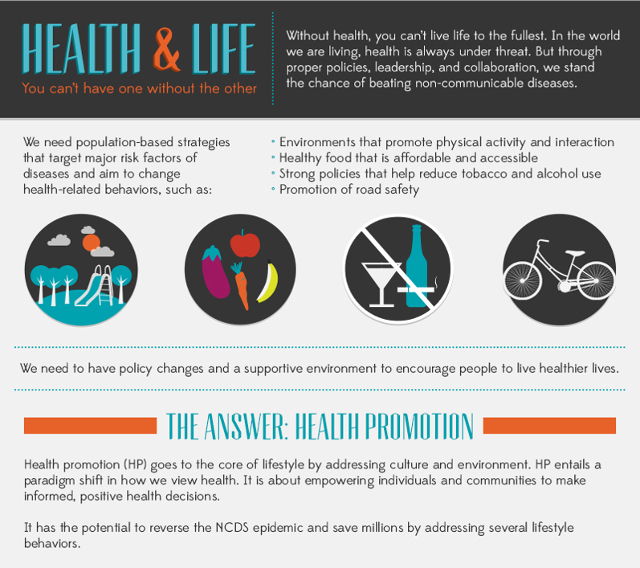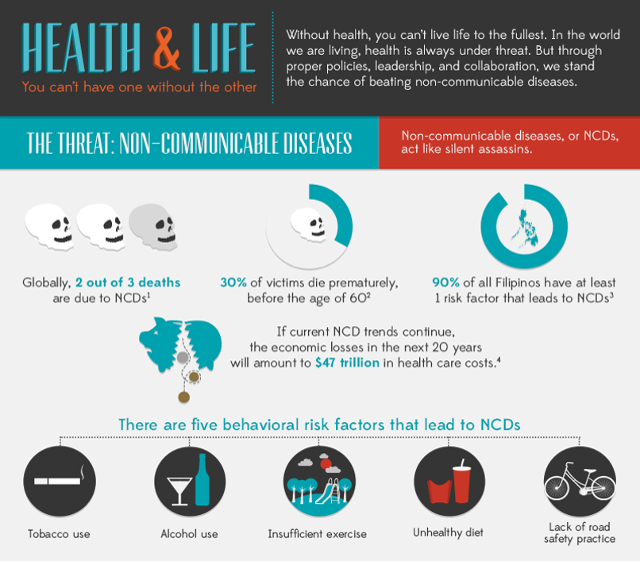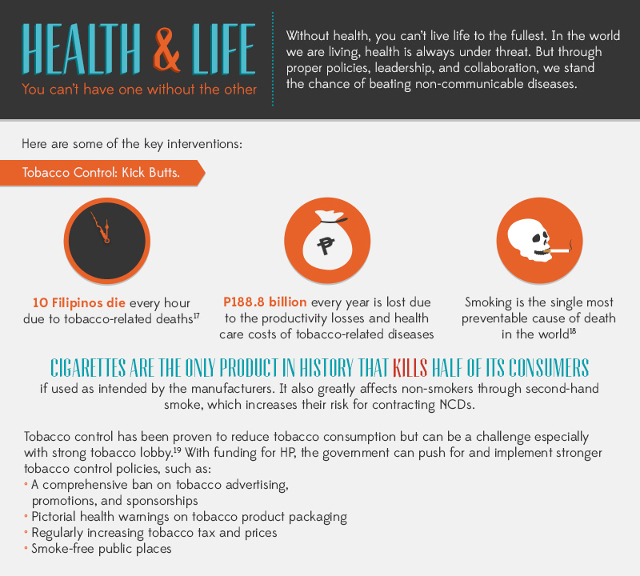SUMMARY
This is AI generated summarization, which may have errors. For context, always refer to the full article.

MANILA, Philippines – The Philippines is lagging behind its Asian neighbors in enabling its citizens to increase control over their health, global health expert Dr Prakit Vathesatogkit said on Friday, May 3.
“In ASEAN,” he said, “5 countries already have a law on health promotion. The good time for the Philippines to set up a mechanism is now. The money is there. It just needs to be tapped. Otherwise, all these budget (sic) will go to the profit of the [tobacco and alcohol] industry.”
Vathesatogkit is the Secretary General of the International Network of Health Promotion Foundations (INHPF). He is also the senior advisor to the Thai Minister of Health.
Following his talk at the National Workshop on Health Promotion, the former Thai senator explained in an interview how an additional 2% tax on tobacco and alcohol products in Thailand was used to fund health promotion (HP). A similar effort to encourage healthy lifestyles and prevent diseases here in the Philippines can be done.
The surcharge can be on top of or already within the sin tax imposed on booze and cigarettes early this year, whose collected revenue will mostly be used for President Aquino’s Universal Health Care Agenda. The agenda is focused on the cure and treatment of diseases and on complying with the United Nations-Millennium Development Goals.
“It depends on your system, whether you want to get the budget from the sin tax that’s already being collected. But ideally, you should have some kind of legislation to guarantee that you have sustainable funding. Not subject to the year to year appropriation,” Vathesatogkit explained.
Health promotion
Irene Reyes, managing director of HealthJustice Philippines, said that HP is a worthy investment as the Philippine healthcare system in its current form is “favorably biased to managing illness rather than encouraging wellness.”
In 2001, Thailand passed the BE 2544 otherwise known as the Health Promotion Foundation Act. It allocated a sizeable budget for mass media campaigns on tobacco and alcohol control, physical activity and healthy diet, road safety, and the mitigation of other risk factors that lead to health-related problems.
The Thai Health Promotion Foundation also funded a National Quitline, a toll-free number printed on all cigarette packs for Thais wanting to quit smoking. The World Health Organization (WHO)-South East Asia Regional Office says that the line receives up to 3,000 calls each day.

Similar legislation for health promotion has been passed in other Asian countries such as Singapore, Malaysia, Vietnam, and Laos. HP deals with prevention rather than cure. To date, tobacco is the top risk factor of the 4 major non-communicable diseases (NCDs) such as heart disease, lung disease, cancer, and diabetes.
“Thailand’s experience is enough proof that health promotion is effective and is a strategic approach in combating NCDs. The burden of disease is eased by limiting the number of people needing treatment and also saving millions in productivity losses,” added Vathesatogkit.
Redundant?
BE 2544, however, faced a strong corporate lobby in Thailand back in 2001. Criticisms surfaced, among them the redundancy of the mechanism.
The law set up a body popularly called ThaiHealth and independent from the Thai Ministry of Health to take care of HP. The body, according to critics, was unnecessary as it duplicated the efforts of the government’s health ministry.
Currently, the government agency responsible for health promotion in the Philippines is the National Center for Health Promotion (NCHP) under the Department of Health (DOH).
Dr Ivanhoe Escartin of the NCHP-DOH said that duplication of efforts can be avoided by ensuring transparency of the budget process. He, however, did not comment on whether an independent body is needed for the job.
ThaiHealth was able to bring down traffic fatalities to 20% within 5 years. Tobacco consumption also went down by 10% within 6 years, and another 4 million smokers have quit after.
“Thailand’s experience on Health Promotion is a good example of investing in evidence-based and cost-effective interventions… Encouraging Filipinos to make healthier lifestyle choices is just as necessary to ensure that the quality of life is not compromised,” Reyes of HealthJustice Philippines said.

The tobacco lobby
Late last year in a Newsbreak report, Rappler had an account of the legal battles that tobacco firms in the country had an upper hand in. The government has largely had to settle for weaker tobacco control measures as a result, despite being a signatory to the Framework Convention on Tobacco Control (FCTC).
HealthJustice Philippines legal consultant Atteh Trivino pointed out the absurdity of tobacco companies attempting to nullify DOH Administrative Order No. 2010-0013, which calls for graphic health warnings on cigarette packs. Firms are arguing in court that they are incapable of producing packs with picture warnings, in spite of manufacturing the same for export abroad.
“So, right now, imagine, Philip Morris here in the Philippines, will be manufacturing tobacco packages w/ graphic health warnings to be able to export to Thailand… Even Mighty Corporation, a relatively smaller Tobacco company,” she said.
Anti-tobacco advocate Dr Ulysses Dorotheo believes there is hope for a health promotion law in the Philippines, despite a strong corporate lobby.
“If we’re talking about political will, I think we’re seeing vestiges of that already,” said Dorotheo, citing the recent passage of the sin tax law and the DOH’s prioritization of NCDs in its agenda as evidence.
“Government really needs to regulate this industry if we want a healthier population,” Dorotheo added. In a June 25 report last year, DOH cited the Philippines as among the top 20 nations with the highest smoking population.
Dorotheo is the project director of the Southeast Asian Tobacco Control Alliance (SEATCA)-Southeast Asia Initiative on Tobacco Tax (SITT) Project. – Rappler.com
Add a comment
How does this make you feel?
There are no comments yet. Add your comment to start the conversation.